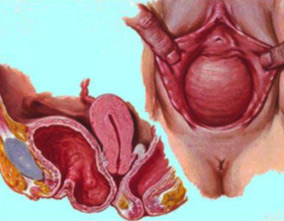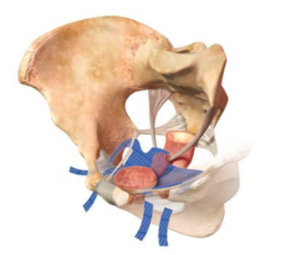Genital prolapse cure
Genital prolapse (organ descent) affects many women, especially after menopause
Cystocele : Organ descent

Synthetic nets

What is a genital prolapse? What are the symptoms?
Genital prolapse (organ descent) affects many women, especially after menopause. It is most often manifested by the perception of a heaviness type discomfort or a ball at intimate level.
Genital prolapse may be associated with other disorders:
This condition is related to a lack of support of the pelvic organs (bladder, vagina, uterus, rectum) by natural fascias (resistant elastic membranes) supposed to support them. These fascias become loose and cause ptosis (lowering) of pelvic organs through the vagina to the outside.
There are :
What are the therapeutic options?
Perineal rehabilitation can improve urinary leakage but does not give any results on the genital prolapse. If there is no treatment, prolapse tends to increase with time. The only real treatment of prolapse is surgery.
What are the main principles of the surgical treatment?
Conventional repair techniques schematically consist of:
These techniques are done by natural means.
However, when they are already damaged, tissues tend to slacken again after a few months or years following the operation, and the problem may recur. This is why more often modern techniques use synthetic nets also called prostheses to replace the damaged fascia and play the role of strong hammock to support pelvic organs. These nets are placed vaginally or laparoscopically.








